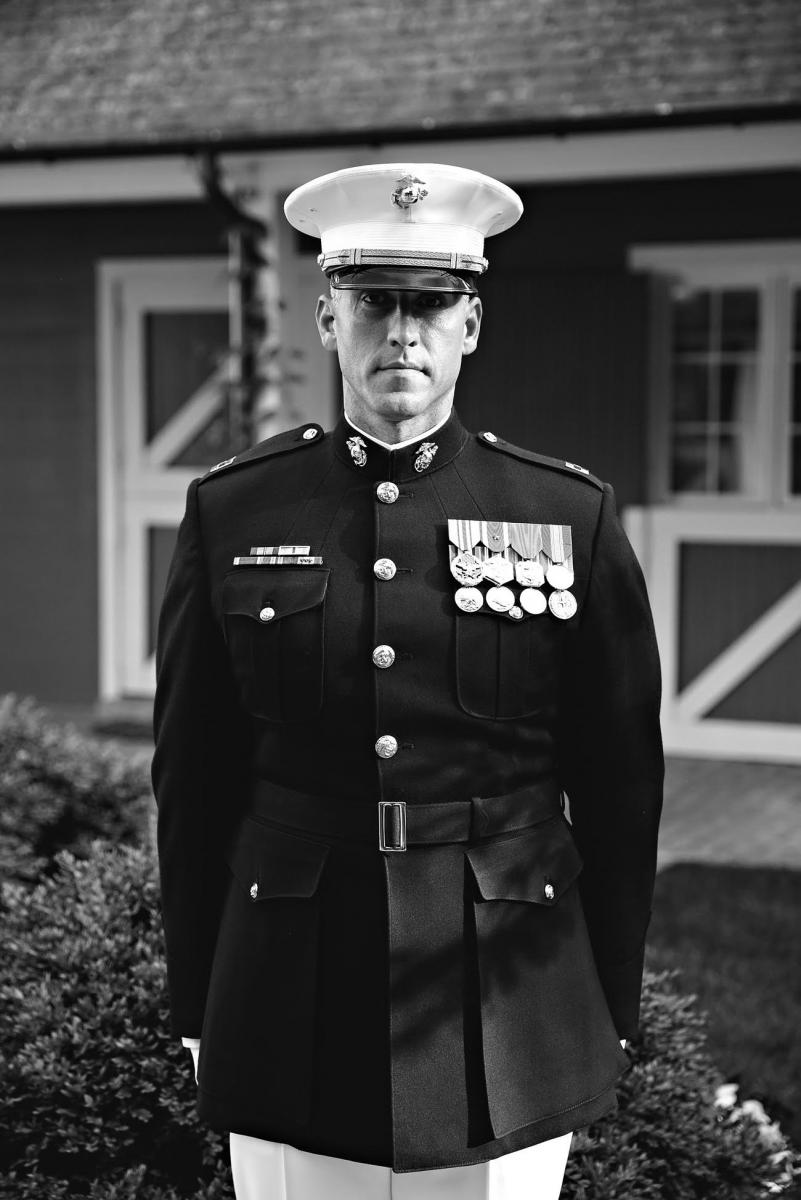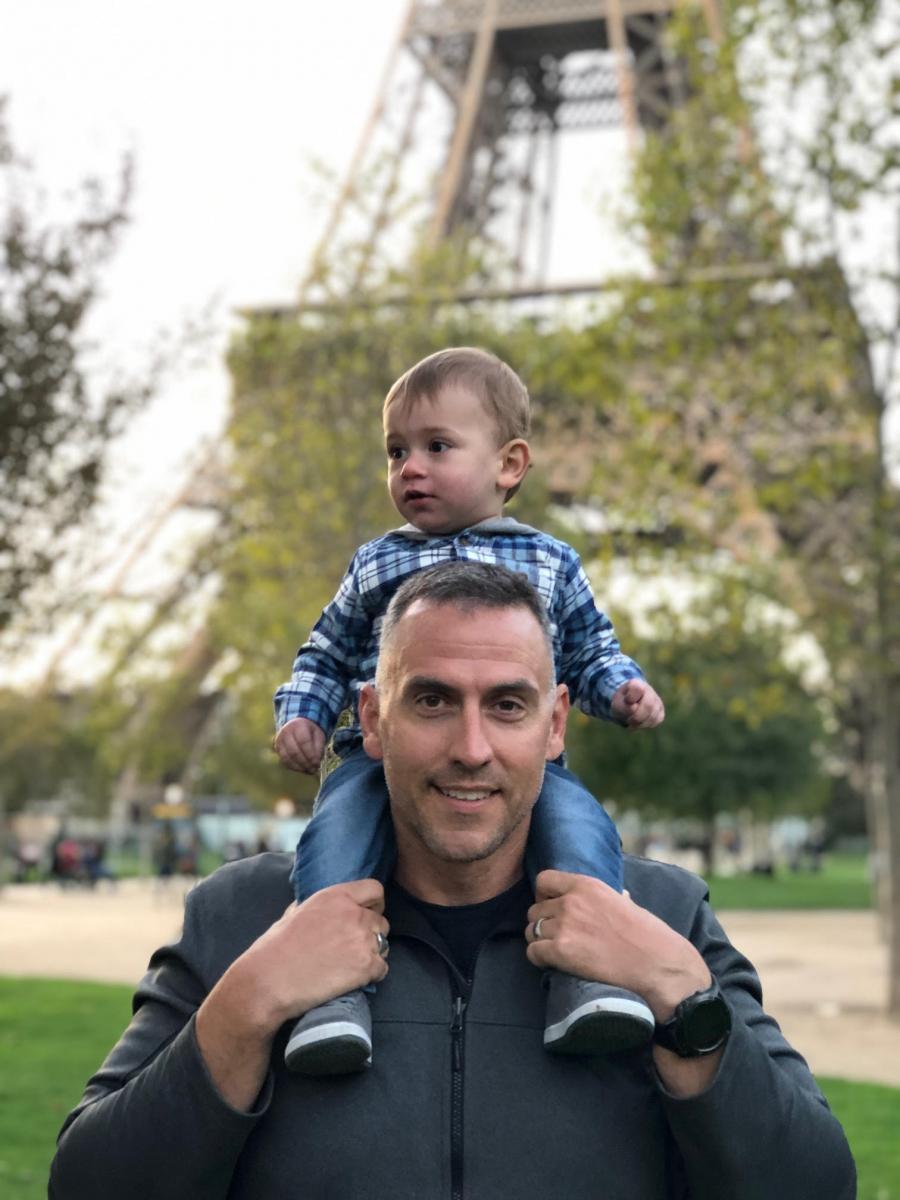Jordan Northrup recently began contributing content to The Stuttering Foundation’s blog. Find his writing at StutteringHelp.org/Blog.
 SFA: Do you remember when you first began to stutter?
SFA: Do you remember when you first began to stutter?
JORDAN: I started speaking around the age of 3.5, and I began to stutter right away. I’ve lived with a stutter as long as I can remember.
Does it run in your family? Who else stutters?
Other than my paternal grandfather, I am the only person in my family who stutters.
Did you seek treatment? Did it help?
Some of my earliest memories are attending speech therapy. It was the early 80s, and SLPs didn’t have the same knowledge and resources they do today. They told my mother that my stutter was too difficult to treat… a combination of silent blocks and repetitions, but not focused to the same syllables. It was too random. Even so, I continued with therapy until the end of first grade. Looking back, I wish some kind of speech therapy had continued for me during my growing up years. It was not until many years later as an adult that I received additional help for my stutter. I was on active duty in the Marines when I finally sought out the services of SLPs. Frequent public speaking is a given when you are a Marine Corps officer, and I desperately needed some help. One great SLP stands out in my mind. He helped me to visualize being at the head of the boardroom, receiving reports from my staff and having all the information I needed. This mindset helped me to remain calmer and to see myself as being in control of the situation. It was a great tool. During the course of my career, medical intervention was also helpful at times to stabilize my mood and reduce anxiety related to public speaking. While not for everyone, the support of medication helped me reinforce visualization techniques and gain more fluency.
 Tell us about your experience with stuttering as a young child.
Tell us about your experience with stuttering as a young child.
Stuttering was tough during childhood. No one wants to be “different” when bullies are looking for anything to pick on. Having a stutter like mine was akin to painting a target on my back. I can remember reading aloud in the first grade. Other kids would snicker when I couldn’t read very well. I knew every word; I just couldn’t make my mouth say them properly or on demand. I vividly remember being bullied by older kids on the school playground because of my stutter. Later on, I remember choosing to stay silent when called upon in class, even though I knew the answer. Better to pretend I was clueless than be laughed at for my stutter.
Has your stuttering gotten worse or better since you were younger? How?
My stuttering has gotten much easier to control as I’ve gotten older. I’ve practiced my public speaking rather than shy away from it. I’ve learned visualization and speaking techniques that helped improve my fluency. Like with anything, familiarity makes things easier. I’ve had to force myself into difficult speaking situations in order to build a level of comfort. The more practice I get, the more comfortable I am, and the easier it is to speak fluently.
How does stuttering affect you in your career?
Stuttering has not negatively affected my career. I’ve enjoyed a full and satisfying career in the Marine Corps, and I quite enjoy public speaking these days. Certainly though, there have been periods where my stutter made things quite difficult, like when I went through Marine Corps bootcamp and Officer’s Candidate School. The Drill Instructors were looking for any kind of weakness, and stuttering can be misunderstood as a lack of confidence. They were merciless to me back then for my stutter, but I survived and became stronger. Outside of Marine Corps training, I’ve never been penalized for my stutter. The Marine Corps doesn’t care how I speak; I am valued for doing my job. But my stutter has caused me professional embarrassment. As with most workplaces, it is customary to go around the room and introduce yourself at large meetings and conferences. Not being able to clearly say my full rank and name is embarrassing and sometimes sets the tone for how my peers perceive me initially.
 How is your stuttering today? What do you do to control or manage it, if anything?
How is your stuttering today? What do you do to control or manage it, if anything?
Today I’m more fluent than not. I’m crystal clear about who I am. I’m confident in what I know and what I can do. The work I’ve done internally in terms of mindset is vitally important to fluency. I go about my life just like any other person would do; if someone hears me stutter, then they hear me stutter. My stutter does not define me. I’ve also found that active listening lends well to fluency. So many times, I’ve been in a conversation or a meeting and I find myself just waiting for the other person to finish so I can jump in. I’m not really listening to what they’re saying, and my thoughts are jumbled and uncoordinated. Instead, being intentional about active listening allows me to fully understand the conversation and craft a response that adds value rather than filler. That extra pause makes it much easier to be fluent. I also try to avoid situations or certain sounds that I know will cause difficulty. For example, my stutter can be worse in the early mornings before I’ve had a chance to warm up my voice, so I try to schedule meetings or speaking events for later in the day rather than first thing.
What are the biggest challenges stuttering has presented to you?
If I’m being honest, stuttering initially sent me down a dark and destructive path. My stutter affected my confidence and self-worth growing up, and I felt like an outcast. I wasn’t popular in school, I kept to myself and didn’t play sports, and I struggled with relationships. I sat in the back of class and kept my head down. Anything to avoid embarrassment. As I grew up, I came to believe I was damaged goods. In college, I fell hard into the party scene to cope with depression and ended up starting a 14-year severe addiction to alcohol. Even though my social and professional situation improved when I became a Marine, inside I felt like the same timid, unsettled, and unworthy little boy who couldn’t speak clearly. It took an incredible amount of self-reflection, counseling, and reliance upon my Christian faith to beat my addiction and reconcile the brokenness inside me. I’m grateful to say that I have 9 years of sobriety now! I share my testimony in the hope that I can help and encourage others.
What is your greatest accomplishment with regard to stuttering?
My greatest accomplishment regarding stuttering is to have conquered my fear of public speaking. I have given keynote addresses, been featured on podcasts, and invited to speak at numerous forums and conferences. I’m comfortable speaking to large audiences on stage and I quite enjoy public speaking these days.
Based upon your experiences, what would you like to tell children who stutter?
Don’t let your stutter define you. Stuttering doesn’t have to be something that forces you to the back of the room. You can push through the uncomfortable and become stronger as a result. Be confident in who you are and where your dreams can lead you. Stuttering is not WHO YOU ARE, it’s just something you do.
Based upon your experiences, what would you tell parents of children who stutter?
Encourage your children to not withdraw into themselves. Show support without belittling or downplaying their stutter. Hear them out on the challenges. Many children who stutter do not feel heard or validated. Remind them always that they are loved and valued. They have something unique to bring to the world that no one else can bring.
What else should we know?
If people want to reach out, I’m on Facebook and Instagram. My book, The War Inside: Finding Victory Over Alcohol, is available on Amazon.
Location:
I’m from Lima, Ohio, and I currently live in the Washington DC area.
Profession:
I’ve been a Marine Corps Officer for 19 years. I’m also a real estate investor and published author/speaker.
Family:
I’ve been married to my wonderful wife for 7 years. We have a 4-year-old son and a 1-year-old daughter, and they are the best part of my life.
Hobbies, Interests, Passions:
One passion of mine is to help individuals and families struggling with the pain of addiction, which is sparked by my own victory over alcohol addiction. My other passion is to support fellow PWS; there aren’t that many of us compared to the rest of the population. We all need examples to inspire us. I also enjoy exercise, cycling, politics, golf, woodworking.
Successes:
I’ve had to overcome many challenges in my life to get to where I am today, specifically my life-long stutter and a 14-year addiction to alcohol.
From the Summer 2023 Magazine





 Podcast
Podcast Sign Up
Sign Up Virtual Learning
Virtual Learning Online CEUs
Online CEUs Streaming Video Library
Streaming Video Library